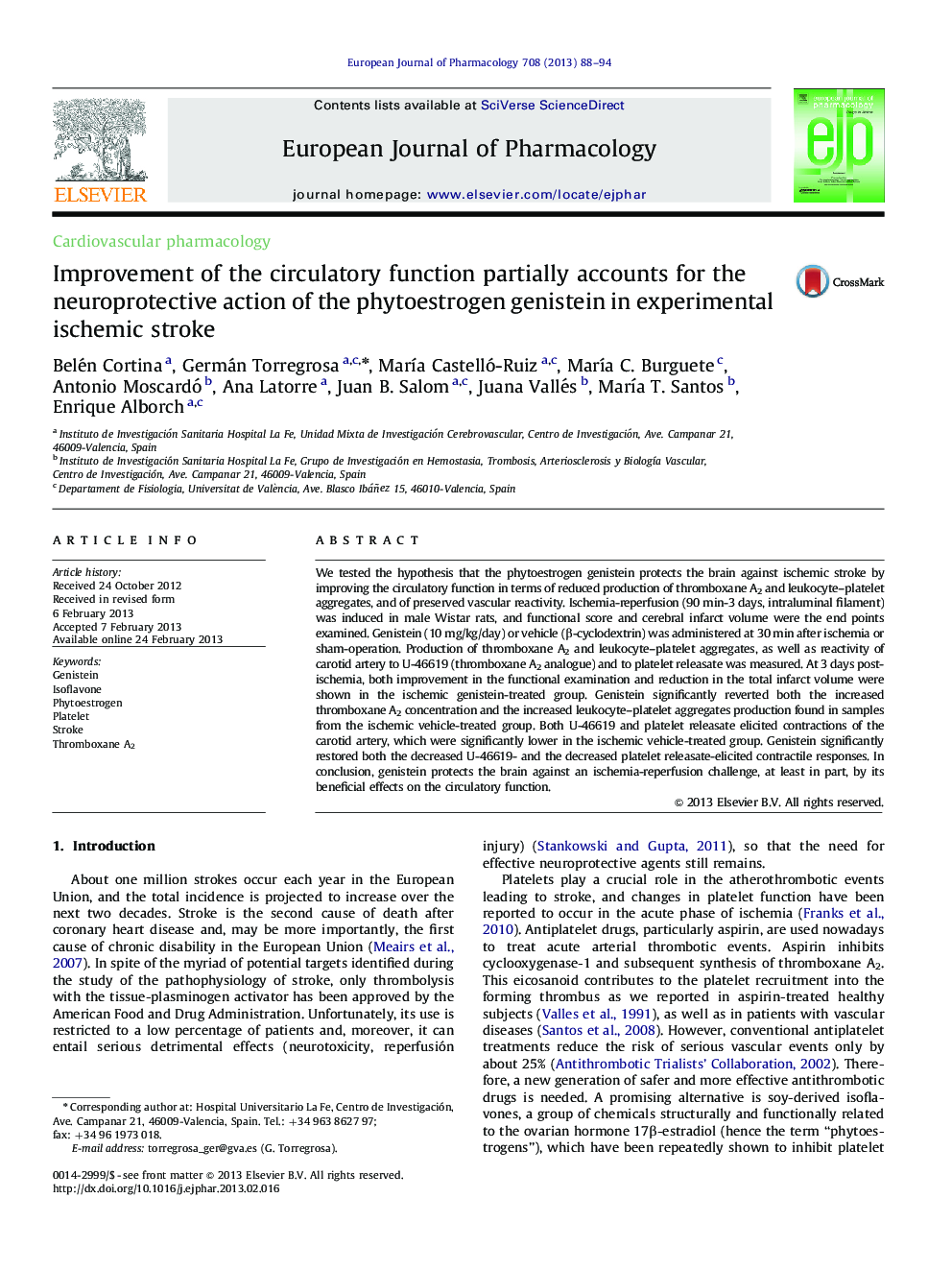| Article ID | Journal | Published Year | Pages | File Type |
|---|---|---|---|---|
| 5828648 | European Journal of Pharmacology | 2013 | 7 Pages |
We tested the hypothesis that the phytoestrogen genistein protects the brain against ischemic stroke by improving the circulatory function in terms of reduced production of thromboxane A2 and leukocyte-platelet aggregates, and of preserved vascular reactivity. Ischemia-reperfusion (90 min-3 days, intraluminal filament) was induced in male Wistar rats, and functional score and cerebral infarct volume were the end points examined. Genistein (10 mg/kg/day) or vehicle (β-cyclodextrin) was administered at 30 min after ischemia or sham-operation. Production of thromboxane A2 and leukocyte-platelet aggregates, as well as reactivity of carotid artery to U-46619 (thromboxane A2 analogue) and to platelet releasate was measured. At 3 days post-ischemia, both improvement in the functional examination and reduction in the total infarct volume were shown in the ischemic genistein-treated group. Genistein significantly reverted both the increased thromboxane A2 concentration and the increased leukocyte-platelet aggregates production found in samples from the ischemic vehicle-treated group. Both U-46619 and platelet releasate elicited contractions of the carotid artery, which were significantly lower in the ischemic vehicle-treated group. Genistein significantly restored both the decreased U-46619- and the decreased platelet releasate-elicited contractile responses. In conclusion, genistein protects the brain against an ischemia-reperfusion challenge, at least in part, by its beneficial effects on the circulatory function.
